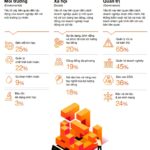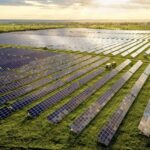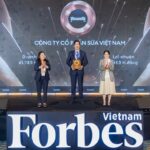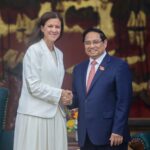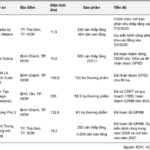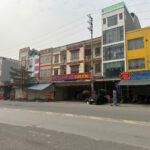Following the post-pandemic repatriation wave, Vietnam has witnessed the return of a generation of overseas Vietnamese and international experts of Vietnamese origin. These individuals once held key positions in leading real estate corporations across Sydney, Toronto, New York, and Seoul.
Beyond bringing financial capital, this global Vietnamese expert cohort returns equipped with international experience, sustainable development insights, and a passion to contribute, particularly in the high-end real estate sector. This shift is not merely an individual trend but a significant driving force for Vietnam’s real estate market in the 2026-2027 period.
Since the enactment of the 2024 Land Law and the amended Real Estate Business Law, the expanded legal framework for overseas Vietnamese has immediately reactivated capital flows from expatriates, especially in countries like Australia, the US, and Canada, into Vietnam’s housing market. Prominent among this group are young experts well-versed in international markets and modern operational strategies.
They are not merely homebuyers or investors but are evolving into project developers, business consultants, and operational managers, setting new living standards for high-end real estate in Vietnam. This is particularly evident in ultra-luxury projects valued at tens of millions of US dollars in prime locations such as Ho Chi Minh City, Hanoi, Da Nang, and coastal resort cities like Phu Quoc and Ha Long.
Returning after years in Australia’s high-end real estate sector, Ms. Sunny Hoang, Marketing and Business Director of The Apple Tree Group, observes that from a global perspective, the differences in investment preferences across high-end real estate markets partly explain the return of this Vietnamese expert generation.

Ms. Sunny Hoang, Marketing and Business Director of The Apple Tree Group.
According to Ms. Sunny, in Australia, individual and professional investors prioritize real estate with sustainability, stable rental income, and legal transparency. Factors like living standards, green design, integrated amenities, and professional management are essential, not just advantages.
Australian property buyers typically engage lawyers and financial advisors throughout transactions to scrutinize legal, contractual, and financial aspects. Real estate in Australia is a long-term financial tool, integrated into personal financial planning, rather than a short-term speculative asset.
This contrasts with Vietnam’s high-end real estate market. Before 2022, Vietnamese real estate was largely speculative, focusing on central locations and price appreciation. Many buyers chose apartments or villas based on brand, project location, or “placeholding” rather than rental potential or long-term living experience.
However, current indicators suggest a clear market restructuring. The Vietnam Association of Realtors (VARS) forecasts that from 2026 to 2027, high-end real estate prices in Ho Chi Minh City and Hanoi could rise by 7% to 12% annually, depending on location, legal status, and surrounding infrastructure.
Simultaneously, absorption rates for this segment, especially Class A apartments and premium villas, will significantly improve due to stable lending rates and more open ownership policies for overseas Vietnamese.
Ms. Sunny analyzes that the global Vietnamese expert generation is reshaping the high-end and ultra-luxury real estate market. Core demands for legal transparency, international-standard management, and customer experience are emphasized. This generation is driven not just by a desire to return or connect with Vietnam but by tangible advantages: policies, costs, and market demand.
From a policy perspective, she believes that to leverage this wave for long-term growth, Vietnam needs clearer legal guidelines for expatriates to own and develop real estate. Additionally, special support packages and mechanisms for experts to engage deeply in sustainable urban development are essential.
“Unlocking resources from remittances, especially intellectual remittances, will be key to transforming Vietnam’s high-end real estate market. This is not just an economic issue but a long-term national development strategy,” Ms. Sunny emphasizes.
Regarding future real estate trends, Ms. Sunny predicts that high-end property prices will continue rising, at least in the next two years, especially in major city centers and newly merged areas with strong infrastructure development.
Absorption rates for high-end and luxury segments will improve for projects meeting the “location – legal status – premium amenities and customer experience” criteria. The shift from speculation to actual utilization is also noteworthy. Many high-end investors now seek rental income (rental apartments, serviced apartments, luxury accommodations for foreign business travelers, and visiting overseas Vietnamese).
Furthermore, next year will see clearer market segmentation: Hanoi and Ho Chi Minh City will continue leading in high-end and luxury segments. Meanwhile, markets like Da Nang, Nha Trang, Phu Quoc, Bien Hoa – Dong Nai, and Long An will benefit from infrastructure development. Legal and policy factors will be pivotal in building investor confidence, especially among overseas Vietnamese and foreign investors. Effective implementation of laws like the Land Law, Real Estate Business Law, and overseas Vietnamese ownership rights will attract stronger remittance flows.
PwC: Vietnamese Businesses Accelerate ESG Adoption
According to PwC’s 2025 ESG Progress Survey, 89% of Vietnamese businesses have already committed or plan to commit to ESG initiatives within the next 2–4 years, marking a significant increase from the previous year’s survey. However, substantial challenges remain, requiring collective efforts from the entire community to address them effectively.
Vinamilk Tops Forbes Vietnam’s 25 Leading Brands of 2025
Vinamilk (HOSE: VNM) leads the “Top 25 Leading Brands in Manufacturing and Services,” outpacing industry peers and solidifying its national brand strength after nearly 50 years of growth. Additionally, Forbes Vietnam has honored Vinamilk in the Top 50 Best Listed Companies in Vietnam for the 13th consecutive year—an unparalleled record in the food and beverage sector.
Prime Minister Urges GE Vernova (USA) to Expand Power Generation and Grid Investments in Vietnam
On September 30th, Prime Minister Phạm Minh Chính received María Victoria “Maví” Zingoni, Executive Vice President and Chief Commercial Officer of GE Vernova’s Power business (USA), and her delegation during their working visit to Vietnam.
DHG Pharma Maintains 14-Year Streak in Vietnam’s Top 50 Most Efficient Business Companies
On September 27, 2025, at the Corporate Governance Conference 2025 held in Ho Chi Minh City, DHG Pharma was once again honored as one of the 50 Most Effective Business Companies in Vietnam 2025. This marks the 14th consecutive year the company has been among the top 5 recipients of this prestigious recognition, solidifying its position as the leading domestic pharmaceutical company in the nation.

